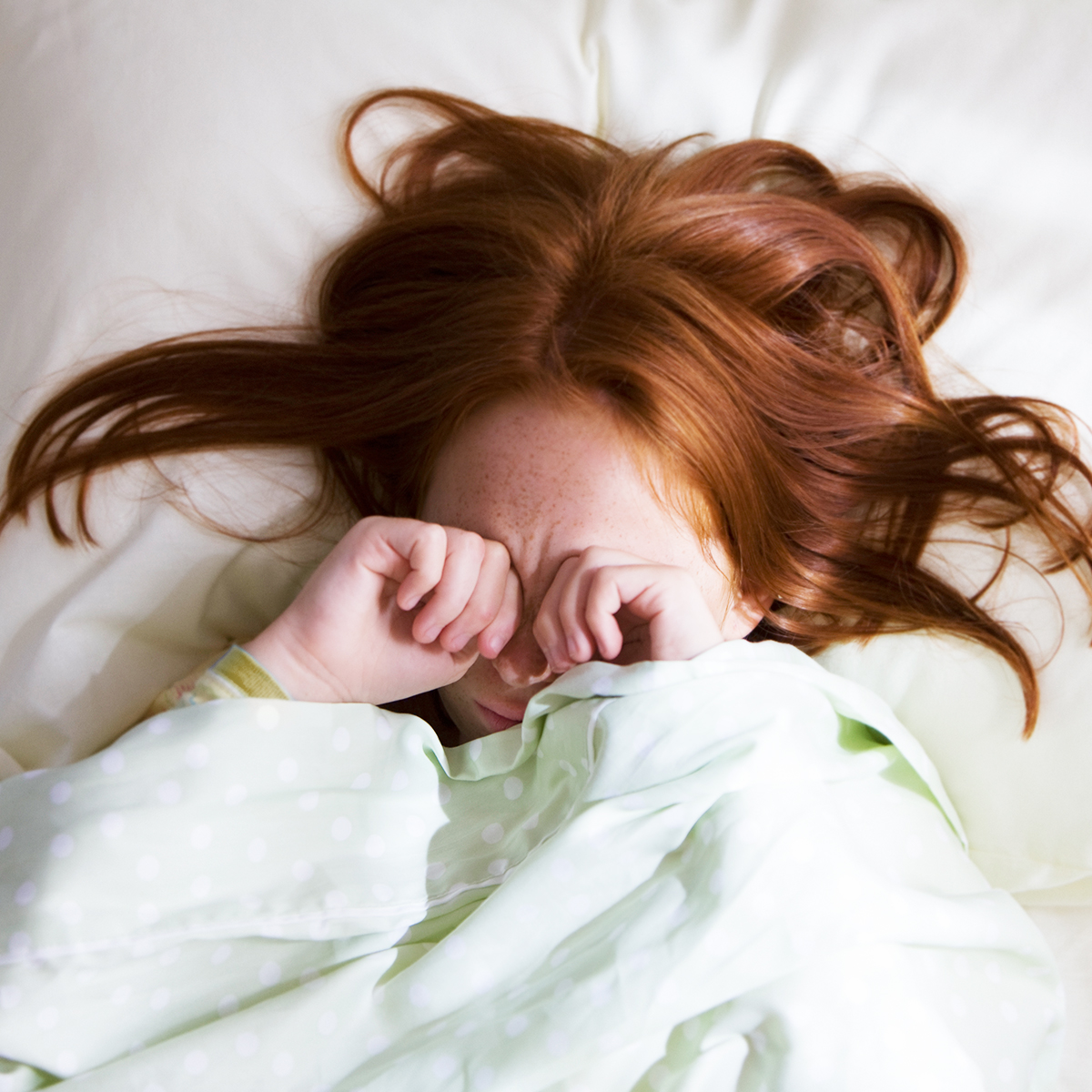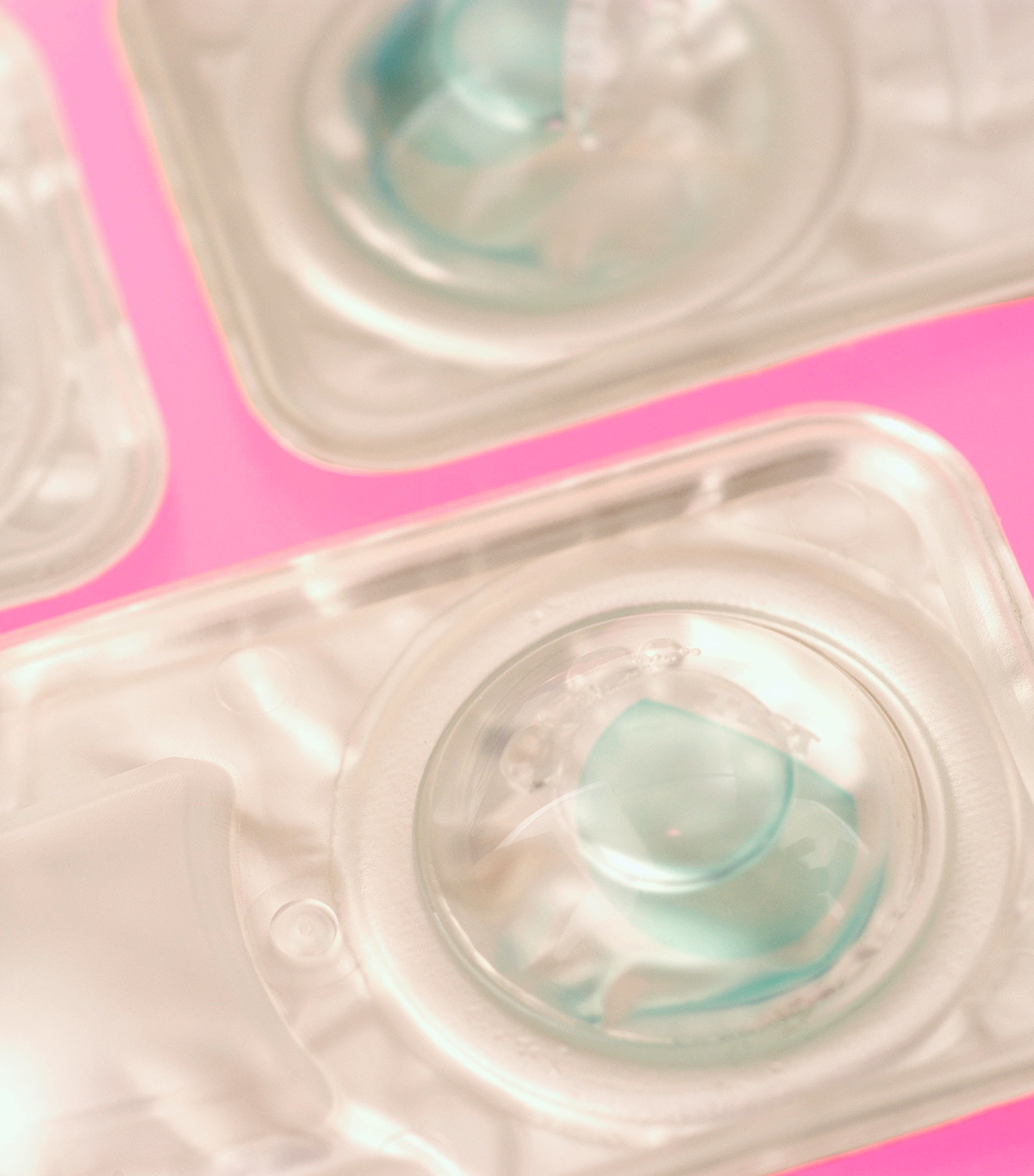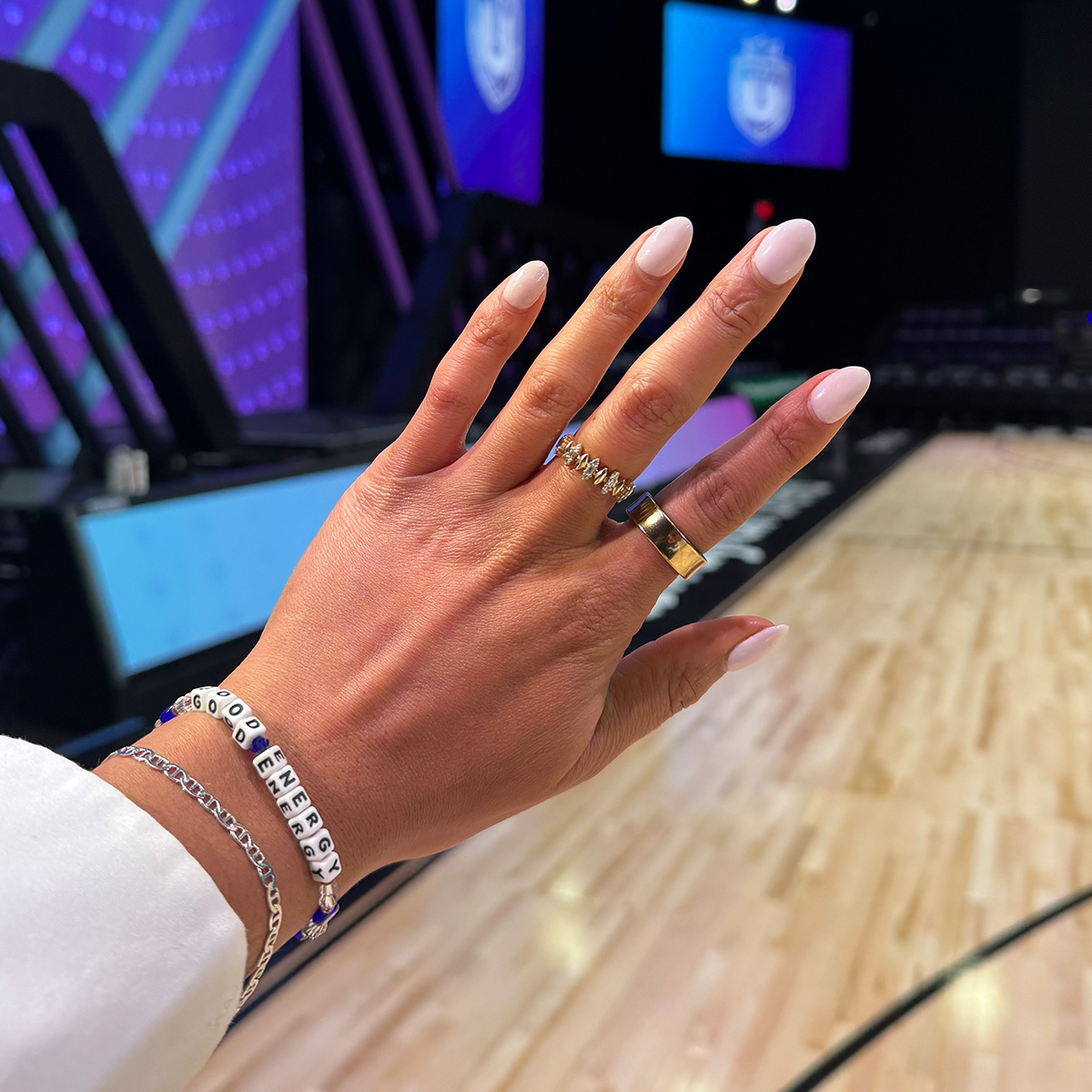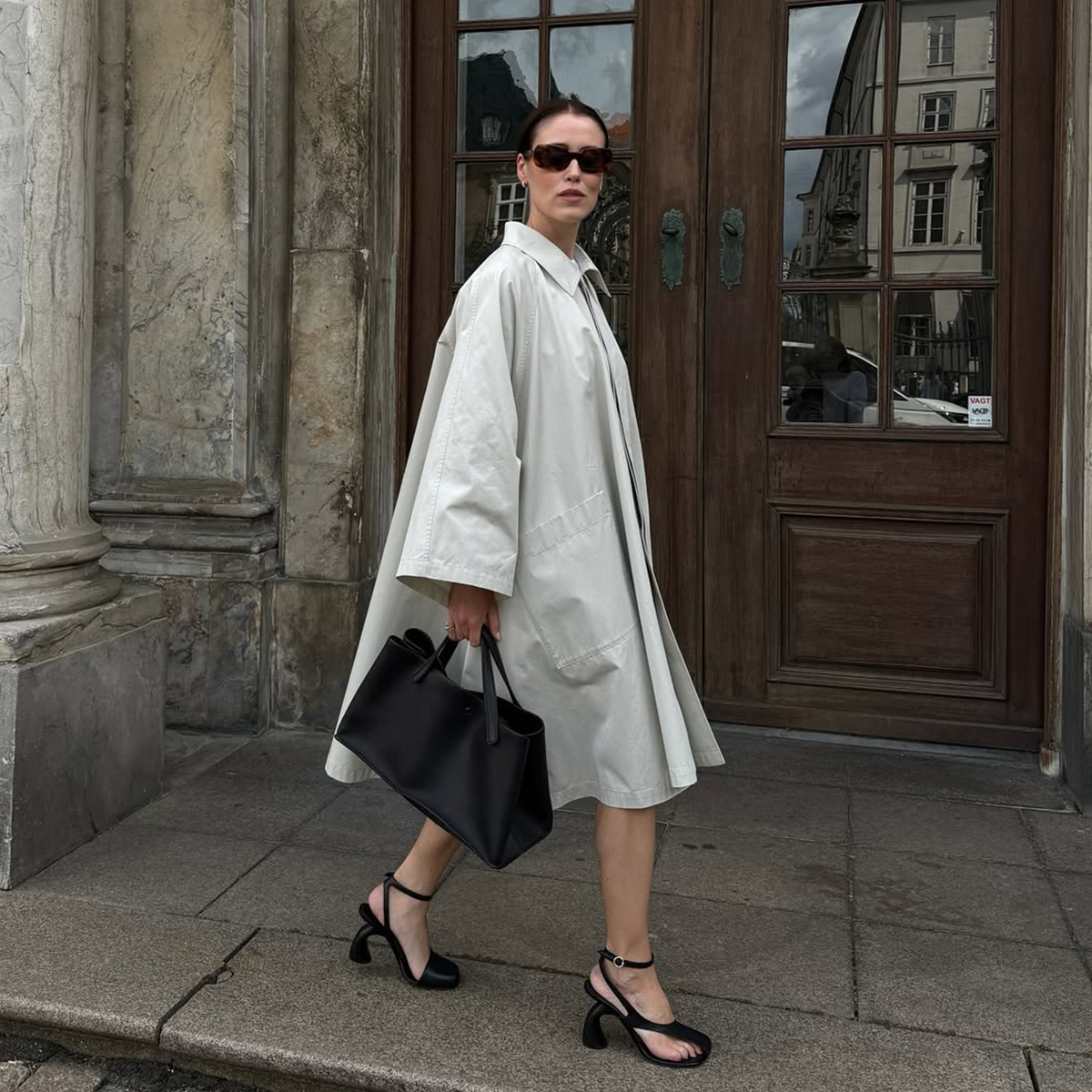Hard Truth: You May Want to Think Twice About Napping in Your Contacts

There are few sensations more oh-god-please-no than waking up after falling asleep in your contact lenses and peeling them off your sore, stinging eyeballs, almost certain that you've actually just removed the top layer of your eyes in the process. Aside from the pain and new shade of bloodshot-pink the whites of your eyes have taken on, there's underlying damage that's happening. It's not parallel to sleeping in your makeup (though that has its pitfalls, too)—this is your vision we're talking about. So even if you're an occasional contact-clad power-napper, there's an entirely different way you should be looking at your eye health (which—spoiler alert—shouldn't always be done through contact lenses).
Below, we asked three different ophthalmologists for their thoughts on the topic, from how often you should wear lenses to all the scary details of what happens when you snooze in them.

First Off, Are Contact Lenses Safe to Wear When You're Awake?
Contact lenses were and still are a huge technological advancement worn by more than 30 million people in the U.S. alone, but as helpful and enticing as they seem, there are several precautions to consider. Says Stephen Pollack, MD, "Eyes don't particularly like contact lenses in the first place," he explains. "Our immune system basically sees the contact lens as a foreign body in the eye and 'attacks' it, just as the immune system would attack a virus or a piece of metal. Over time, the eyelids develop a type of allergic reaction against the contact lenses, and the protein and deposits that build up on it."
Alberto Distefano, MD, echoes these warnings, explaining that the eyelid allergy is called "floppy" eyelids. "Floppy eyelids can easily 'flip' while sleeping [Ed note: meaning the eyelid can be turned in with the eyelashes rubbing against the cornea, or the eyelashes themselves may be touching the cornea with the eyelid in a normal position] and cause inadvertent corneal abrasion or injury," he explains. "These patients will need to be treated with lubrication and sometimes eyelid surgery."
On the whole, however, he's a bit more optimistic about long-term wear. "Daily contact wear with proper hygiene can certainly be done with no or minimal issues. The shape of the cornea does warp with long-term wear. This is really only an issue if considering cataract or refractive (Lasik, etc.) surgery in the future and would require not wearing contact lenses (a contact-lens holiday) for at least three weeks to allow the cornea to go back to its normal shape, allowing proper measurements for cataract surgery."
Now, What About Sleeping in Them?
Even if you've only spent one night with your contacts in, you're leaving the window of opportunity open for damage. "Once is all it takes!" says Distefano. "People certainly get away with wearing contacts while sleeping. Others will show scars from previously healed small ulcers that the patient was not even aware existed. But all it takes is one time sleeping in contacts and the right situation with the right bacteria present to lead to vision-threatening infection."
Pollack agrees: "One should make every effort to get the contact lenses out well before bedtime so no mistakes are made. It is common to have the rare occasion blossom and become a commonplace habit, so it's best not to get started leaving the contact lenses in at night in the first place."
What's Happening to Your Eyes When You Sleep With Contacts In?
"When you sleep or even nap, you limit the amount of oxygen to the front part of the eye, or the cornea," explains Weslie Hamada, OD, from Johnson & Johnson Vision. "All contact lenses add an additional barrier for oxygen to get to the cornea. Besides the contact lenses drying out from lack of normal tears while sleeping, this added stress can cause the cornea to be compromised, allowing pathogens (microorganisms) to enter and cause a serious infection."
Pollack adds another interesting piece of information: There aren't any blood vessels in the cornea, but if it faces a decreased supply of oxygen on a regular basis (from sleeping in contacts), abnormal blood vessels may grow in the cornea, which significantly threatens its health and the overall comfort of the eye. When we're awake, we're blinking, which is helping to spread tears while we wear contacts, but at night when we're sleeping, our eyes are closed, and coupling that with a lens over the cornea without any distribution of tears makes the environment even drier.
Lastly, you could develop a corneal ulcer. If the top-most layer of the cornea breaks down or rubs off but the rest of the cornea is normal, that is a corneal abrasion, which could likely scrape the area. While this is bad enough, trauma even deeper in the cornea heeds a worse problem. Says Distefano, "If part of the underlying cornea is also affected, then it is an ulcer. All ulcers lead to scarring when healed. Scarring in the middle of the cornea will cause continued poor vision that can only be corrected surgically."

What Should You Do If You Wake Up and Realize You've Slept With Them In?
First things first, don't panic. "Remove them immediately and wear your glasses for the evening or day," says Hamada. "But most importantly, if you feel any pain, discomfort, or your eye looks red, return to your eye doctor immediately. You only have two eyes, and they need to last you a lifetime."
How Long Can You Safely Wear Contacts Each Day?
A good rule of thumb is to remove your contacts at the end of your school day or work day. Says Hamada, "Your eyes need oxygen and a break after a busy day. It's about creating a routine, just like brushing your teeth and washing your hair. Shorter wear periods may be recommended by your eye doctor based on your eye health and lifestyle."
But there are definitely exceptions to the "rule"—if you need to continue wearing them throughout the evening, whether you don't own glasses or you'd just prefer to keep them in while you finish out the rest of your day, Pollack says this is fine. "Some people comfortably wear contacts for the entire 14 to 18 hours they are awake, while others do best when removing them after a lesser number of hours (eight or so)," he explains. "The decisions regarding which contact lens type to wear and for how many hours (as well as whether or not to take a day off to give the eyes a break) can be made in partnership with an eye-care professional, who should be seen on a regular basis."
This Begs the Question: Which Type of Lens Is Best?
Although generally more expensive, the consensus among the doctors is that daily lenses are most suitable for the eye. "The shorter the 'lifespan' of a lens before it should be discarded, the less likely it is to build up significant debris and deposits, and the less likely it is to cause inflammation of the eyes," says Pollack. "Daily disposable lenses are meant to be put in each morning, taken out, and thrown away each evening so that a used lens is never actually placed on the eye."
Using a daily lens also eliminates the need to sit them in a solution all night long, making them much more hygienic. Says Distefano, "Daily contacts remove any issues with improper cleaning of weekly/monthly contacts, or potential contamination of contact lens cases or cleaning solutions." By falling into a habit of disposing your lenses each evening, you'll hopefully be less inclined to fall asleep with them in.
Would It Be Smart to Go on a Contact-Lens Break From Time to Time?
In short (and unsurprisingly), yes. "A contact-lens holiday is an excellent idea to give your eyes a break," says Distefano. "Usually a weeklong break every three to six months is ideal, although there is no standard."
Ready to take the leap and give daily contacts a try? Acuvue is giving away free-trial lenses—fill out this form and bring it to your eye doctor to see if you qualify.
Disclaimer
This article is provided for informational purposes only and is not intended to be used in the place of advice of your physician or other medical professionals. You should always consult with your doctor or healthcare provider first with any health-related questions.


